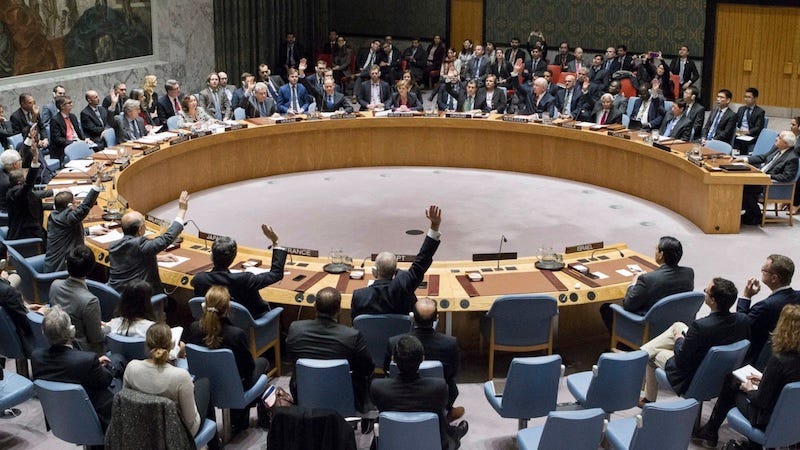Israel’s escalating war crimes in Lebanon and Australia’s weak response
The era of blind support for Israel without consequence is drawing to a close, and the political consequences for this delusion may arrive sooner than anticipated.
The expansion of Israel’s war beyond the Gaza Strip into Lebanon marks another terrible chapter in the region’s escalating violence, further entrenching the cycle of destruction that has already been inflicted upon Palestine for decades. Israel’s bombardment of southern Lebanon, now stretching up to Beirut, echoes a familiar and devastating pattern of military aggression and war crimes, displacing up to a million people who have fled their homes in fear of further strikes, and killing thousands of civilians.
These attacks follow in the wake of previous tragedies, such as the pager-bomb explosions – suspected to be orchestrated by Mossad – that killed around 300 people and injured over 3,000 others in Lebanon. The scale and intensity of Israel’s military operations in Lebanon are an extension of its ongoing campaign in Gaza, where evacuation orders for civilians often presage devastating strikes, disproportionately affecting women and children.
Israel’s military operations, whether in Gaza or now in Lebanon, have repeatedly violated international law, defying United Nations resolutions and conventions designed to protect civilians. The bombardment in Lebanon, just like the massacres in Gaza, appears to have been premeditated and unrelated to the events in Israel from October the previous year, which were used as a justification for the mass killing of well over 40,000 Palestinians in Gaza. By extending its war beyond its borders, Israel is deepening the humanitarian crisis in Lebanon, and even more troubling are Prime Minister Benjamin Netanyahu’s threats to expand the war into Jordan, a nation with which Israel has a long-standing peace treaty. The international community is witnessing an escalation that threatens to destabilise the entire region, yet there is an alarming passivity in global responses.
In Australia, the government’s weak stance on Israel’s actions reflects a broader issue of political inertia in the face of blatant human rights abuses. Many Australians, along with political commentators, continue to question what their country can actually do in response to this conflict and have suggested that the Foreign Minister, Senator Penny Wong and the Australian government are being unfairly targeted for their inaction. Yet the reality is that there is a considerable range of diplomatic tools and practical actions that Australia could employ to signal its opposition to Israel’s aggression and contribute meaningfully to international efforts to halt the violence.
For example, recalling its ambassador to Israel; expelling the Israeli ambassador in Canberra; imposing high-level trade sanctions; halting military exports to Israel, and reducing cultural and sporting ties are just a few of the options available to Australia. These are not unprecedented measures; Australia has a history of using such tactics to oppose apartheid in South Africa during the 1970s and 1980s. At that time, few people questioned whether such actions would make a difference: aside from people such as Margaret Thatcher in the UK and a young Tony Abbott in Australia, it was accepted that standing up to systemic human rights abuses and racial injustice was a moral imperative, and Australia played a significant role in that global effort. The same rationale should apply today in the case of Israel’s ongoing war crimes in Palestine and Lebanon.
The Israeli government is on a dangerous path, and if it continues, it risks self-destruction, and hard diplomacy, sanctions, and international pressure are essential to stop Israel from perpetuating further violence and violating the rights of Palestinians and Lebanese civilians. The silence and inaction from the western countries, particularly from countries such as Australia that hold considerable diplomatic and economic influence, allow these atrocities to continue unchecked.
When nations fail to act, they become complicit in the violence they passively observe. If countries like Australia had taken decisive action when it became clear that Israel was committing war crimes and engaging in genocidal practices in Gaza, we might not now be witnessing the tragic extension of these actions into Lebanon and further afield. The unchecked military campaign Israel has launched across its borders further exposes the need for international intervention, not just to protect the lives of those caught in the conflict but to uphold the principles of international law and human rights that are supposed to govern relations between states.
Australia’s complicity in Middle East injustice: Failing multiculturalism, human rights, and global peace
Australia’s consistent alignment with Israel in the Middle East, often at the expense of acknowledging the grievances of the Arab world, reflects a broader failure in its foreign policy. This approach not only undermines Australia’s claim to being a global advocate for human rights and peace but also neglects its own multicultural values, which should inherently drive more balanced diplomatic stances.
Former prime minister Scott Morrison’s decision to move Australia’s embassy from Tel Aviv to Jerusalem in 2018 stands as an example of this, a move that pandered to a narrow ideological worldview, one rooted in apocalyptic and religious interpretations rather than rational, diplomatic considerations. This decision, deeply offensive to Palestinians and the wider Arab world, was largely ignored by the mainstream media in Australia, and this lack of critical discourse around such a significant diplomatic blunder revealed how deeply embedded the bias toward Israel is within Australian political and media establishments.
The question arises: why can’t Australia implement a range of actions against the state of Israel, or even express solidarity with the Lebanese people, who are being devastated by Israeli bombs? Australia’s Lebanese community has played a significant role in shaping the nation’s modern identity, yet their voices are conspicuously absent in policy discussions concerning the Middle East. For a country that prides itself on multiculturalism, it is baffling that the federal government is unwilling to take a stand that reflects the values of its diverse population, particularly when it comes to condemning the illegal actions of a foreign government. The Labor Party, which touts itself as a champion of multiculturalism, has been disappointingly silent on this front.
Despite the United Nations condemning Israel for its continued illegal actions, Australia, along with the United States, the United Kingdom, and a few other nations, persists in shielding Israel from any meaningful consequences. Australia’s foreign policy toward the Middle East also reflects a broader indifference to the suffering of innocent civilians, particularly in the Arab world. The government’s refusal to condemn Israel’s actions, while simultaneously turning a blind eye to the suffering of Lebanese and Palestinian civilians, is a profound moral and political failure. Surely, it is possible to condemn the actions of extremist groups and criminal factions on all sides without ignoring the reality that it is overwhelmingly innocent civilians who are caught in the crossfire. It is these civilians – whether they are Palestinians in Gaza, Lebanese in Beirut, or refugees fleeing the region – who deserve Australia’s solidarity and protection.
A moral crisis and the looming political consequences
The weak and ambiguous response from the Australian government, exemplified by Senator Penny Wong’s carefully worded statements, reflects a longstanding issue in Australia's foreign policy regarding Israel and the broader Middle East. The statements are familiar: deeply concerned, gravely concerned, and calls for de-escalation echo across the media but lack real conviction or specificity. The situation was even extended to Wong’s meeting with Iran’s Foreign Minister Seyed Abbas Araghchi, with firm discussions about pressing Iran for “regional de-escalation and restraint”. Yet, there was no mention of “pressing” Israel, despite its efforts to destabilise the region and escalate tensions with Lebanon, Iran, Jordan and Egypt.
The omission of Israel’s name, particularly in instances where it is directly responsible for military actions and civilian casualties, speaks volumes about the government’s reluctance to challenge the narrative propagated by Israel and its allies. Even when the death of Australian aid worker Zomi Frankcom, killed in a missile attack by the Israel Defense Forces, cannot prompt a direct acknowledgment of Israel’s role, it is clear that Australia’s political establishment is deeply entrenched in a policy of both-side-ism –careful not to offend Israel, and cautious to the point of cowardice.
The foreign minister’s failure to explicitly condemn Israel in instances where its military actions have clearly crossed ethical and legal boundaries highlights an alarming reluctance to hold the state accountable. This failure is not born of ignorance; the Australian government knows full well the role Israel has played in escalating conflicts in Gaza, Lebanon, and beyond. The use of vague language and diplomatic equivocation allows the government to avoid any substantial policy shifts or criticisms, effectively continuing a status quo that props up a regime currently led by Netanyahu, a man whose political survival hinges on perpetuating conflict.
The ongoing support for Israel, particularly under the Netanyahu regime, raises questions about why Australia continues to follow this path. Of course, the answer lies in a combination of political influence, strategic alliances, and a deeply ingrained reluctance to deviate from U.S. foreign policy, which remains steadfastly pro-Israel. The influence of a powerful ultra-conservative Israel lobby within Australia, particularly in Sydney and Melbourne, also ensures that any significant political pushback against Israeli policies is stifled before it gains momentum.
The consequences of this approach are more than just moral; they have real political implications, especially within Australia’s diverse and multicultural electorate. The Lebanese community in Australia, particularly in Western Sydney, is large and politically active. The community’s roots in Lebanon, a country now under bombardment from Israeli forces, create a strong connection to the conflict that the government can no longer afford to ignore. While the Lebanese–Australian community is diverse, with various religious, political, and regional differences, the escalating violence in Lebanon could galvanise parts of the electorate that feel abandoned by the government’s refusal to condemn Israel’s actions.
While there is undoubtedly frustration within the Lebanese and broader Arab communities, it is difficult to predict whether this will be sufficient to influence voting patterns at the next federal election in a significant way. However, it would be a mistake for the Australian government to assume that foreign policy issues like Israel’s aggression in Lebanon will have no bearing at all on domestic politics. The Lebanese community, along with other Arab and Muslim communities in Australia, is growing increasingly aware of the gap between Australia’s professed values and its actions on the global stage. This disconnect could lead to a loss of support for the Labor government, particularly in key electorates in Western Sydney, where disillusionment with the party’s failure to act is driving voters toward alternatives, such the independent candidates supported by Muslim Voice and the Australian Greens.
The political inertia that has characterised Australia’s foreign policy toward Israel is unsustainable in the long term. As the conflict deepens and more innocent civilians are killed, the government’s refusal to take a firm stand will become harder to justify to both the international community and the Australian electorate. The current approach, dictated by an unrepresentative Israel lobby and a fear of upsetting powerful allies, is fundamentally at odds with the values that Australia claims to represent.
Ultimately, the Australian government must decide whether it is willing to continue supporting a foreign policy that is driven by political expediency and alliances rather than principles. Certainly, the next federal election will not hinge on foreign policy, but it will be influenced by the broader sense of whether the government truly represents the values of the electorate. Whether or not the current government is willing to listen to community concerns remains to be seen – and so far, they haven’t – but one thing is certain: the era of blind support for Israel without consequence is drawing to a close, and the political consequences for this delusion may arrive sooner than anticipated.











